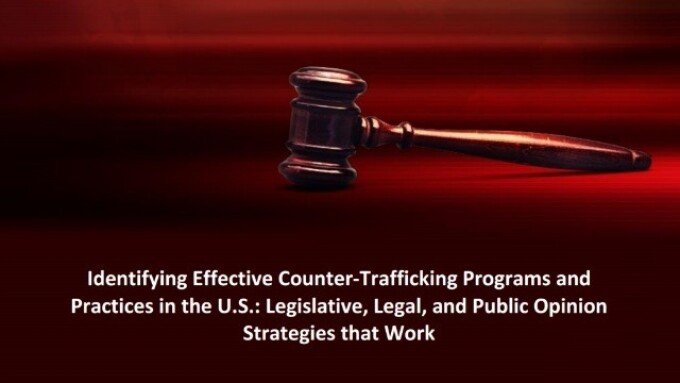WASHINGTON — One of the top adult entertainment attorneys is warning of a new study submitted to the Justice Department that places blame on porn for sex trafficking.
The new study, titled "Identifying Effective Counter-Trafficking Programs and Practices in the U.S.: Legislative, Legal, and Public Opinion Strategies That Work," represents one of the first-ever reports on the efficacy of sex trafficking efforts in the U.S.
The study said that viewing porn or visiting strip clubs frequently can affect people's attitude and beliefs towards the ills associated with such trafficking.
Adult industry attorney Lawrence Walters, however, said that "this report appears to be more evidence that the government is seeking to repackage its failed 'War on Porn' and use the hot button issue of sex trafficking as a justification.”
“Exposure to erotic content has been studied over and over, with no credible link being found to the development of anti-social behavior," Walters told XBIZ.
Criminologist Amy Farrell and colleagues Drs. Vanessa Bouche and Dana Wittmer divided the recent report into three parts — evaluating how state anti-trafficking statues impact human trafficking arrests and prosecutions; analyzing state human trafficking cases; and assessing public opinion on human trafficking.
“[V]iewing pornography, strip bar attendance and engaging in prostitution all contributed to a more laissez-faire [allow to do] attitude toward the practice of such 'human slavery,'" the report said.
"Respondents who consumed pornography within the last year have more knowledge of human trafficking, but they think that it should be less of a government priority.”
The study further said that "respondents visiting a strip club within the last year reported lower levels of concern about human trafficking and thought that human trafficking should be less of a government priority than those respondents not visiting a strip club within the last year.”
"The research suggests that in the absence of strong state investment, safe harbor, and civil actions provisions, a state's human trafficking enforcement will be lacking," the study said.
According to the study, "we believe this work will be important in informing legislative responses to human trafficking in the future and helping to guide implementation of new anti-trafficking laws."
The report was recently published by the Justice Department, which funded the research with a three-year, $500,000 grant.








